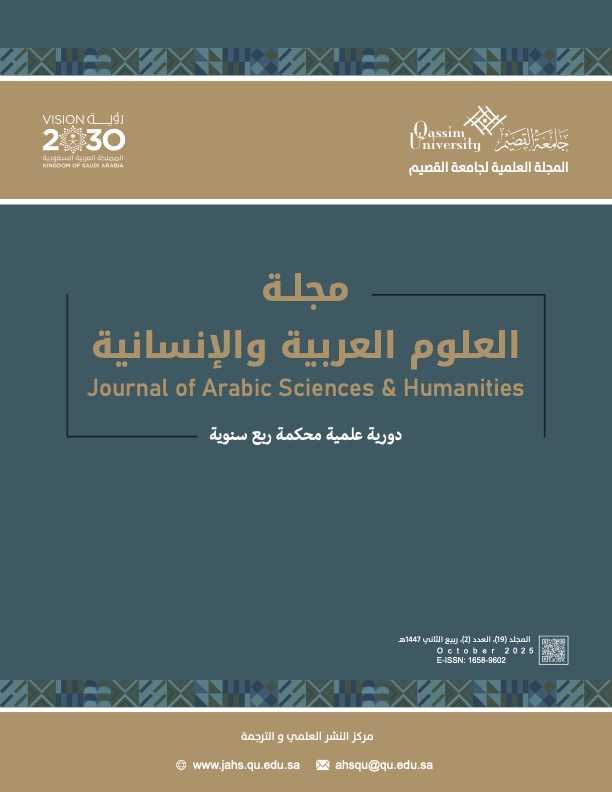Pragmatics of Introductory Discourse in Samples of Modern Literary Letters
Abstract
Introductory discourse illuminates and decodes a text, presenting a revealing picture before details unfold. This study examines the pragmatic dimension in the introductory discourse of modern literary letters (MLLs), focusing on how it reflects the addressee’s circumstances and status. It identifies discourse characteristics, communicative principles, and rhetorical functions, while clarifying its purposes and multiple roles. The findings show that the principles governing MLL introductions help inform the addressee with precision, account for context, encourage mutual appreciation, and portray the writer with epithets matching their status. The discourse achieves several functions: communicative, fostering dialogue and interaction; critical, highlighting the origins of MLLs; advertising, stressing their impact on the recipient; and informative, introducing the author, clarifying the foreword–letter author relationship, and addressing challenges in compiling and writing introductions.
Keywords: Letters, introductory discourse, status, communicativeness

This work is licensed under a Creative Commons Attribution-NonCommercial 4.0 International License.


